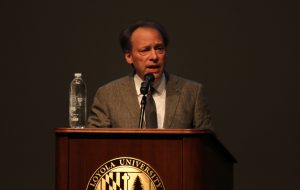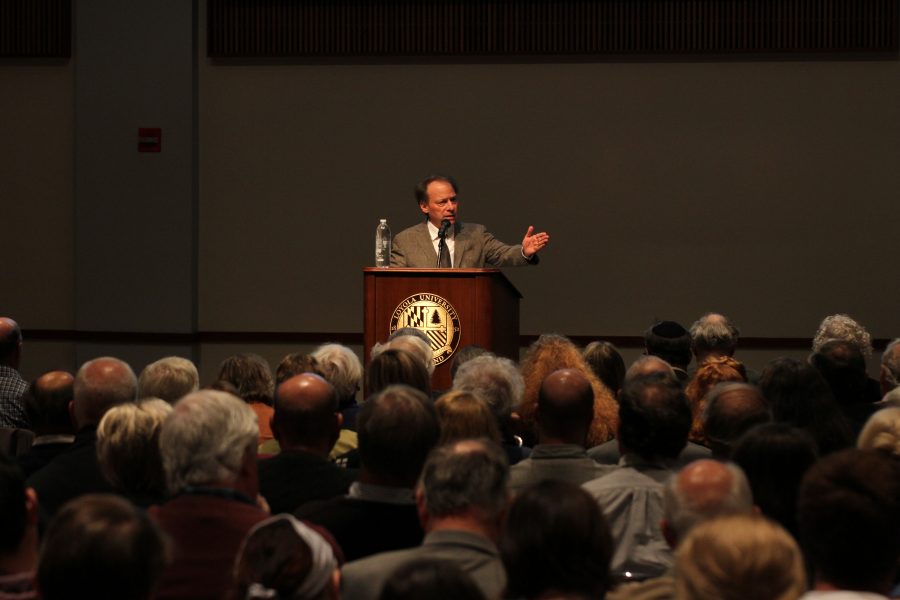On Nov. 1, the Jerome S. Cardin lecture key speaker Adam Gopnik explored relations among religions. The Cardin lecture was introduced as an annual event at Loyola 31 years ago.
The worst act of anti-semitism in the history of the United States took place last week with the mass shooting at the Pittsburgh Tree of Life Synagogue, killing 11 and injuring six. Gopnik unraveled the issues of intolerance, where they stem from, and what needs to be amended within the practice of religions to stop this bigotry.
Gopnik, who is an author broadcast journalist for the Canadian Broadcasting Corporation (CBC), and staff writer for The New Yorker, stressed that although differing religions and people, in general, did not always celebrate differences in the past, the progression to these unthinkable acts of violence that society has normalized stem from some sort of newly-founded stimulus. Members of different religions may have not always embraced one another, but a sense of tolerance was regularly maintained until recently.
Gopnik asserted that religion needs to reinstate its “liberal mission.” Liberal, not in a partisan sense, Gopnik stressed, but referring to the principle of pluralism: the acceptance of a broad range of opinions–not just tolerance but celebration and embracing. To adopt pluralism, Gopnik said we must assert ourselves against the “assault on liberalism.” In doing this, members of all religions must reject hatred and narrow-mindedness.
Unfortunately, history proves that a bigger case can be made for intolerance for religion than for tolerance. Gopnik explained that if you believe you have the absolute truth about the world, you’d be crazy to not share it, and you’d be even crazier to allow others to reject that truth.
However, absolute truths aside, Gopnik stressed the importance of accepting that there is a higher power and that others may visualize God in different ways. Without pluralism, our current state “cannot provide us with a sufficiently meaningful life,” Gopnik said.
Gopnik also underscored the role of spirituality in regaining the ideals of tolerance and acceptance, explaining that people need to start prioritizing God over materialism because “[what] appeals to the head and not the heart leads to violence.” Reasoning and logic will never be enough to uproot intolerance and the violence that comes from it; people must prioritize and live life through their morals.
Outside of the issues that are ingrained within religions, the United States and the world at large make liberalism hard to achieve, thus making it harder to foster acceptance and pluralism.
According to Gopnik, for every person who pursues a liberal education, 100 others are turned to the streets. Access to learning more about these values is so scarce that it is easier to be intolerant than it is to celebrate differences.
“The crisis we are in is not that liberalism is under assault, but it needs to reevaluate and reconstitute itself,” Gopnik said, suggesting that religious followers must value where they are, not what they want.
Overall, Gopnik claimed that we must begin to look at religion again as a truce. There can be no progress if no one can agree to disagree. Society must have a healthy skepticism of one another—not skepticism that brings out violence but skepticism that allows people to learn from one another. By human nature, pluralism comes easy. It is only a matter of reinstating it.


















































































































